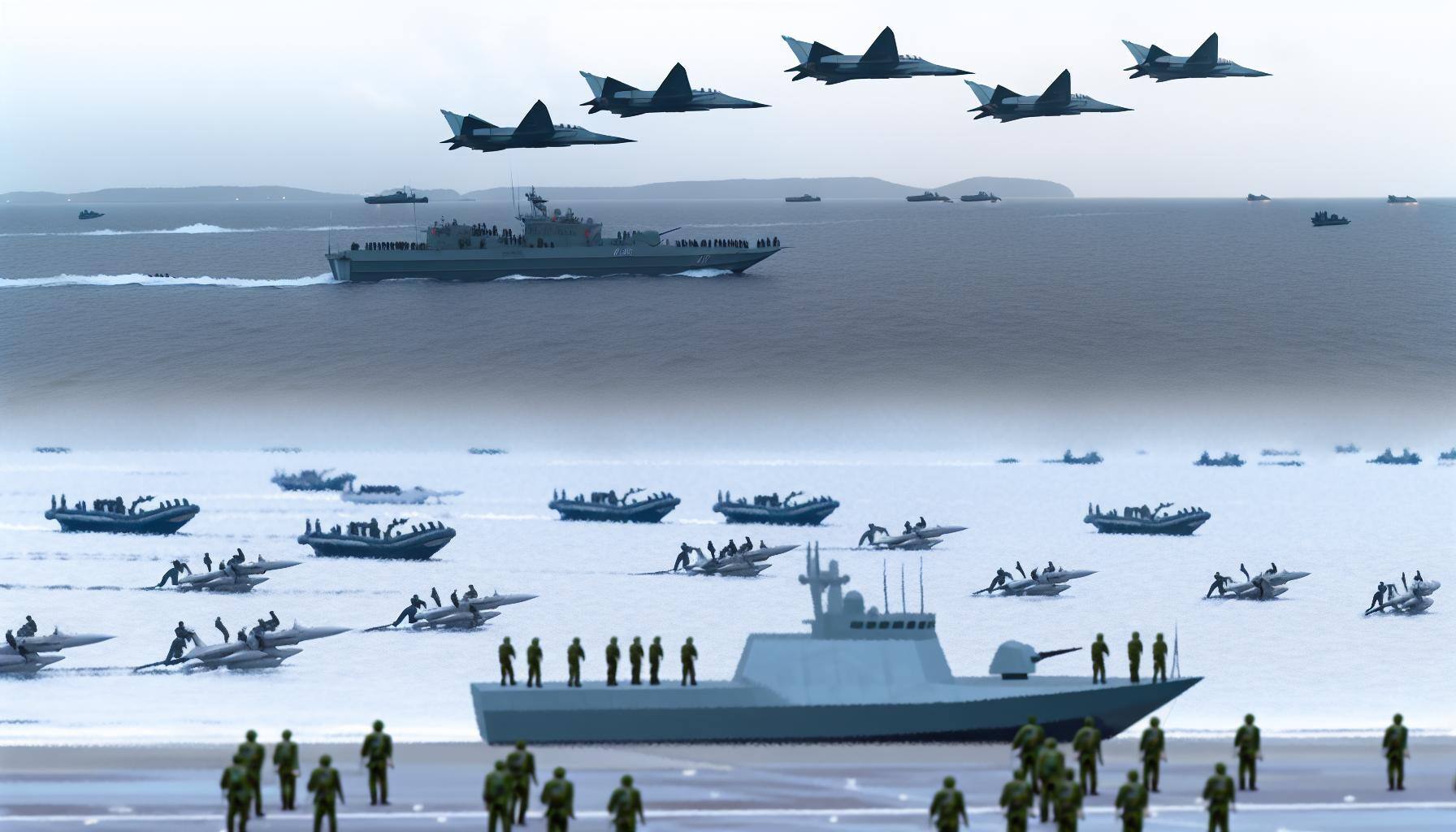
On May 20, Lai Ching-te was inaugurated as Taiwan's new president, prompting significant military drills by Beijing around the island three days later.
Lai, known for his pro-independence stance and affiliation with the Democratic Progressive Party (DPP), was Beijing's least favored candidate. Despite prior aggressive rhetoric, China's response post-election has been relatively measured.
Beijing's Initial Reaction
Beijing's response to Lai's election was less severe than anticipated. Instead of the expected dramatic escalation, China ended bans on some Taiwanese agricultural imports and slightly relaxed its prohibition on Chinese tourists visiting Taiwan. Even the military drills were less provocative than those following U.S. House Speaker Nancy Pelosi's visit in 2022.
Strategic Calculations
-
Election Outcome: Beijing viewed the election results with cautious optimism. While preferring an opposition victory, the CCP recognized the unlikelihood after the opposition parties failed to form a joint ticket. Lai secured only 40% of the vote, lacking a strong mandate, and the DPP lost its legislative majority, which the Kuomintang (KMT) gained. This outcome suggested a political shift away from the DPP.
-
Dialogue with KMT: The KMT's legislative success offers Beijing a platform for dialogue, as the party acknowledges the "1992 Consensus," unlike the DPP. This consensus allows for cross-Strait dialogue under the premise of "one China" with different interpretations, facilitating a pragmatic engagement strategy.
-
Risk of Escalation: China is wary of excessive escalation leading to an unprepared conflict. Beijing expects Lai to adopt provocative stances, necessitating reactions to maintain domestic nationalist support while avoiding war. The initial military drills post-inauguration were a controlled response to Lai's assertive rhetoric in his inaugural address, signaling Beijing's intent to maintain a balance.
Long-Term Tensions
Despite current restraint, tensions are expected to rise, similar to the gradual escalation seen with Lai's predecessor, Tsai Ing-wen. Lai's pro-independence rhetoric and DPP policies, such as de-Sinicization, are seen by Beijing as incremental moves towards formal independence. Consequently, Beijing will likely continue efforts to delegitimize Lai's administration, framing it as ineffective or dangerous.
Factors Mitigating Escalation
-
Political Shifts: Beijing believes that Taiwan's political landscape is shifting against the DPP, bolstering its confidence. The DPP's loss of legislative control presents opportunities for Beijing to engage with KMT lawmakers, potentially leading to limited concessions and dialogue.
-
Moderation Signals: Beijing's less provocative narrative post-election and President Xi Jinping's dovish message to former President Ma Ying-jeou suggest a strategic restraint. Lai's cautious approach, barring his inaugural rhetoric, also hints at a potential for moderated cross-Strait relations.
-
Domestic and International Challenges: Beijing faces numerous challenges, including economic issues, internal purges, and tensions in the South China Sea. These pressures necessitate caution in handling Taiwan to avoid additional crises. The upcoming U.S. presidential election and Xi's bid for a fourth term in 2027 further incentivize restraint.
Scenarios
-
Continued Tensions: The most likely scenario is a continuation of the past eight years' tensions, with potential for increased friction. Efforts in Beijing, Taipei, and Washington will aim to manage escalation, aided by KMT-CCP dialogue.
-
Detente: A less likely scenario involves Beijing adopting a less provocative stance due to domestic and international pressures, with Lai presenting himself as a moderate leader. This would require significant shifts in both parties' approaches, particularly Lai's acknowledgment of a new basis for dialogue.
-
Escalation Without War: The least desired but possible scenario involves a rapid deterioration of relations, driven by Beijing's aggressive responses to Lai's provocations. While major conflict might be avoided, this path risks significant instability.
In conclusion, while Beijing's initial response to Lai's presidency has been restrained, the underlying distrust and strategic considerations suggest that cross-Strait tensions are poised to increase, albeit within a managed framework to avoid war.
Source: GIS Reports
Related Posts
Taiwan considers a Plan B
Taiwan's President Lai Ching-te faces complex regional and domestic challenges as he navigates..
US-Taiwan-Japan Maritime Safety Working Group..
A working group with experts from Japan, Taiwan, and the United States discussed maritime safety..
China to ban ships from area near Taiwan due to..
China will ban ships from entering an area north of Taiwan on Sunday due to "possible falling..




